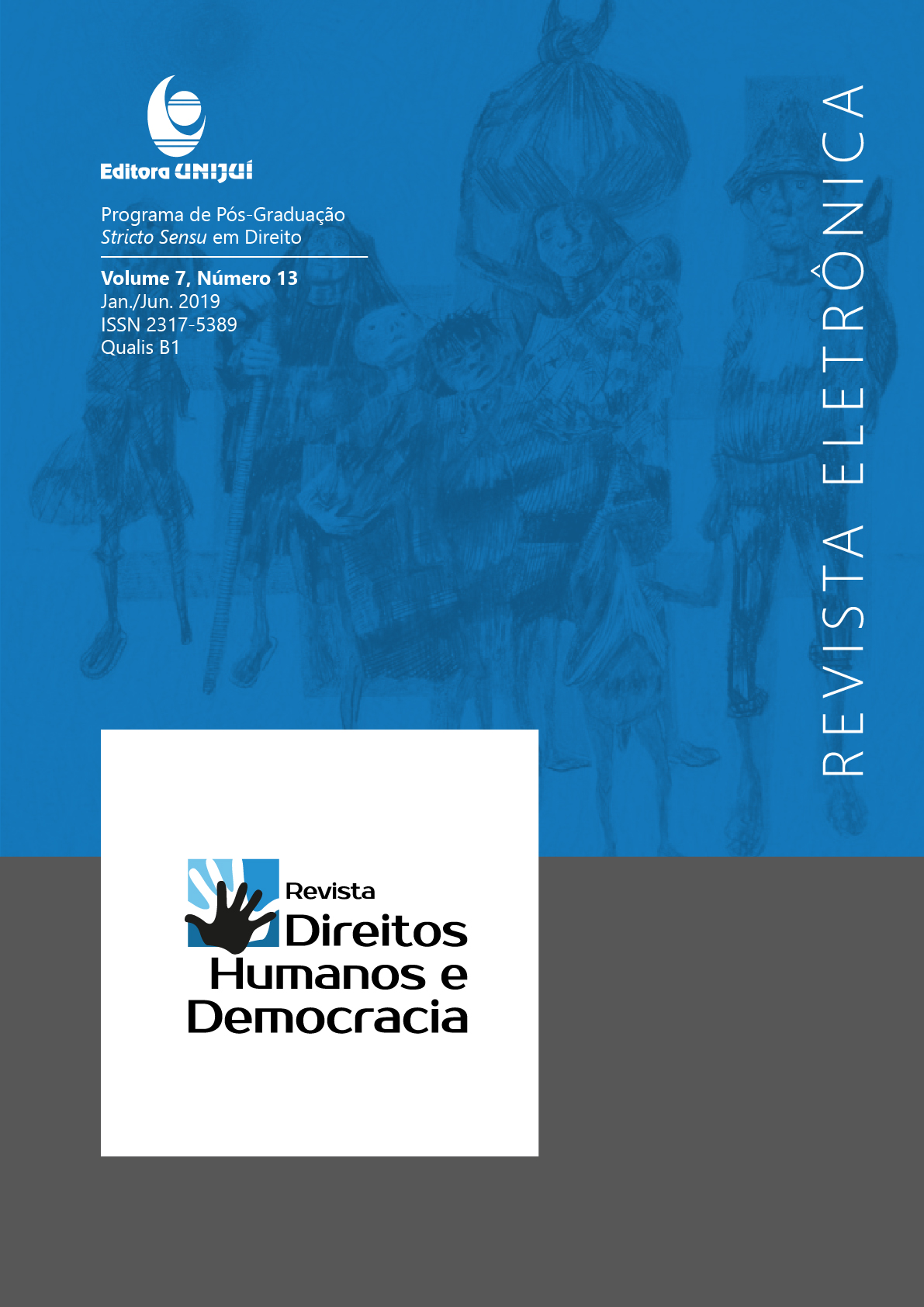A FUNDAMENTAÇÃO DOS DIREITOS HUMANOS SEGUNDO ALEXY
DOI:
https://doi.org/10.21527/2317-5389.2019.13.90-105Abstract
Robert Alexy é conhecido, no Brasil, principalmente em função da sua teoria dos princípios, desenvolvida na interpretação dos direitos fundamentais. Todavia, na sua vasta obra, para além desse campo, o jusfilósofo alemão debruçou-se, outrossim, sobre os direitos humanos. Especificamente, sobre a sua fundamentação, objeto do presente artigo. Partindo da premissa de que, embora a efetivação dos direitos humanos seja crucial, dela não se dissocia o problema da fundamentação – vale dizer: existe uma complementaridade entre a fundamentação e a efetivação dos direitos humanos – procede-se, neste trabalho, a uma leitura da fundamentação dos direitos humanos em Alexy, antes a situando na sua teoria do direito e na filosofia do direito em geral, e objetivando, ao fim, evidenciar, também no pensamento do professor tedesco, aquela relação de complementariedade entre fundamentação e efetivação.
Downloads
Published
How to Cite
Issue
Section
License
By publishing in the Revista Direitos Humanos e Democracia, authors agree to the following terms:
Articles are licensed under the Creative Commons Atribuição 4.0 Internacional (CC BY 4.0), which allows:
Share — copy and redistribute the material in any medium or format;
Adapt — remix, transform, and build upon the material for any purpose, including commercial use.
These permissions are irrevocable, provided the following terms are respected:
Attribution — authors must be properly credited, with a link to the license and indication of any modifications made;
No additional restrictions — no legal or technological measures may be applied that restrict the use permitted by the license.
Notices:
The license does not apply to elements in the public domain or covered by legal exceptions.
The license does not grant all rights required for specific uses (e.g., image rights, privacy, or moral rights).
The journal is not responsible for opinions expressed in the articles, which remain the sole responsibility of the authors. The Editor, with the support of the Editorial Committee, reserves the right to suggest or request modifications when necessary.
Only original scientific articles presenting research results of interest, not previously published or simultaneously submitted to another journal with the same purpose, will be accepted.
References to trademarks or specific products are intended solely for identification purposes and do not imply any promotional endorsement by the authors or the journal.
License Agreement: Authors retain copyright over their articles and grant the Revista Direitos Humanos e Democracia the right of first publication.













